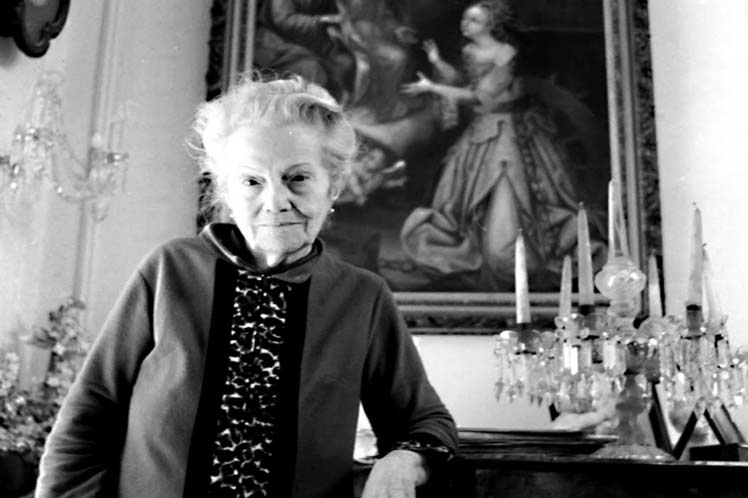"You are the sweetness that will never be mine, but the infinite sweetness!", expressed the remarkable Cuban writer and beloved poet Dulce María Loynaz, who was born in Havana on 10 December 1902, in the notebook Melancolía de otoño (1997), about the elusive love.
It has been said - without reason or deep discernment - that the winner of the 1992 Cervantes Prize is one of the least amorous lyricists in America, but this assertion is fallacious because Loynaz loved from the depths of her soul, perhaps without making it public or visible in her writings, but some surprising confessions bear witness to this.
To the writer and literary executor Eduardo Martínez Malo, the writer herself declared about this feeling in Dulce María Loynaz. Memoria de una poetisa:
"Love is madness when we love we lose our reason, that is why it is very easy to write love verses; it is enough to let what we have inside come out, sometimes at the surface of our skin. Neruda said: 'To love is to suffer time and space with sweetness' and he knew very well what he was saying."
Further on, the author of Jardín said that she met love for the first time at the age of seventeen, through the telephone line, and she loved that man as one can only love at that age when illusions and fantasies flood the heart.
That is why she emphasized: "I had loved before I was a lover, and isn't that always the case? But it was in vain the fierce opposition of my family made us separate forever, I thought."
Of her marriage to her cousin Enrique Loynaz y Quesada, whom she described as "a primitive being, beautiful to the point of brilliance, a modern Othello (...) He was as if surrounded by a halo of splendor", she wrote in a poem.
According to her, this great figure of Spanish-American literature was very happy with her cousin, and she kept very fond memories of him in her memory:
"It was a happy time that never came back. At first, the idea of marriage was forced, but I loved him. I loved him as only a young girl in love can love. It was the love of youth that fulfilled my yearnings. But nothing is perfect, and his desire for possession, unfounded jealousy overcame love. It seems that love is always foolish," she said.
When tempted to define this feeling, the poet emphasized: "I believe that love, like all feelings that reach the depths of the soul, is terrible and soft, because in its depths there is no understanding, no light, no shadow, no good or evil, only a fusion of opposing perceptions, which engulf us.''
Moreover, from her own experience, she concluded that it is possible to love two people, in different ways, one with feelings and the other with sexual instincts.
"Twice in my life, I felt terrible and soft love, and I felt it in a definite way. I loved two men, and I was consistent with my feelings; I loved each one for what he was or represented for me, and I gave myself to each one, as each one was capable of receiving me", she said.
According to the author of Un verano en Tenerife, in one she loved masculine elegance, and in the other, she loved security because in the former she was trapped by the romantic spirit and in the latter by the man of the world, mature, and calm love.
The bonds of this mature and enduring love were definitively united in marriage on 8 December 1946 with the Canarian journalist Pablo Álvarez de Cañas, and much is known of this relationship, which was profusely described in the book Fe de vida."
"Pablo was, at first, the impossible love, later a Pygmalion shaping his Galatea, opening doors and windows to recognition, to light, only to disappear after a while, like an intermittent, leaving a trace, partly phantasmagorical, partly idealized, and a lot of grateful nostalgia", said the Cuban National Literature Prize winner.
This belated love came into Loynaz's life like precious honey sought in the most hidden place, and for her, happiness came with its materialization of the communion of two souls, for as she confessed towards the end of her life: "I, who have written about many things, have only truly written about you. And you deserved this uncovered homage of my word, of that word which, through you, one day attained scope and echo."


Deje un comentario